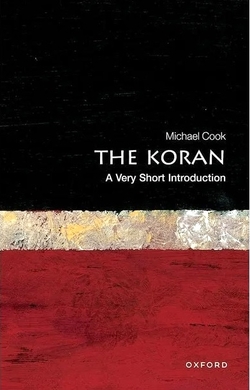 The Qur'an is one of the world's most important and most enigmatic books. In a beautifully written, concise, and insightful study, packed into one of a series of "very short" introductions to a multitude of subjects, Cook makes clear some of the mysteries of this holy book, in part by his comparisons with other scriptures, in part by his excellent examples. He tells about its origins, its content, organization, translation, pronunciation, commentaries, and dissemination. Cook takes up the subtle ironies connected with the book (Islam is a missionary religion but the sacredness of the Qur'an means that Muslims face a "clear and insoluble conflict between the desire to proclaim God's word to the unbelievers and the shudder of them touching it"). He takes up such seemingly minor but revealing topics as treating the Qur'an as literature, disposing of a worn text, and the role of calligraphy.
The Qur'an is one of the world's most important and most enigmatic books. In a beautifully written, concise, and insightful study, packed into one of a series of "very short" introductions to a multitude of subjects, Cook makes clear some of the mysteries of this holy book, in part by his comparisons with other scriptures, in part by his excellent examples. He tells about its origins, its content, organization, translation, pronunciation, commentaries, and dissemination. Cook takes up the subtle ironies connected with the book (Islam is a missionary religion but the sacredness of the Qur'an means that Muslims face a "clear and insoluble conflict between the desire to proclaim God's word to the unbelievers and the shudder of them touching it"). He takes up such seemingly minor but revealing topics as treating the Qur'an as literature, disposing of a worn text, and the role of calligraphy.
Many of his descriptions are evocative and explanatory. Here is one on the effect of tajwid, a musical version of reciting the Qur'an: "It is not unseemly to weep silently during a particularly moving recitation. ... Much of the intensity that gives the art of Koranic recitation its effectiveness comes from a union of grave and dignified restraint with a kind of playing with fire." To demonstrate the singular hold the Qur'an has in Muslim society, Cook tells of "a woman who for thirty years communicated exclusively" with quotations from the Qur'an.
For anyone, at almost any level of knowledge, wanting to learn more about the Qur'an, this is a wonderful place to start. Reading Cook does not replace immersion in the Islamic holy book, but it does prepare one for reading it. The miniature format of the Very Short Introduction and its miniature price only make the study more alluring.